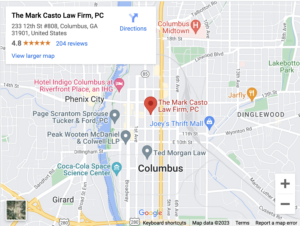
You will incur many types of losses after suffering a traumatic injury. Doctor’s bills, prescription expenses, and income losses can overwhelm you, using up your savings and maxing out your credit cards. Fortunately, you can pursue compensation that reimburses you for past expenditures and covers your future losses.
Out-of-pocket expenses represent one form of these losses. You can include these expenses as long as you can show that they relate to your injuries and resulted from the other party’s negligent or intentional actions.
Economic Damages After an Injury

The losses you suffer due to your injuries fall into two categories. Economic damages encompass your financial costs. Any amounts you spend, lose, or fail to receive due to your injuries will qualify as economic losses.
Common examples of economic damages include:
- Past and future medical costs
- Income losses due to missed work
- Diminished future earnings due to disabilities
Non-economic damages represent the diminishment in your quality of life due to your injuries. As the name suggests, non-economic damages come with no inherent value. Instead, they are measured based on the human impact of your injuries.
Examples of these losses include:
- Physical pain
- Mental anguish
- Emotional distress
- Inconvenience
- Disability
- Disfigurement
An insurance adjuster or jury will place a value on these losses based on the severity and duration of your injuries.
What Are Out-of-Pocket Expenses in a Personal Injury Case?
Out-of-pocket expenses are a type of economic damages. They cover the financial losses you have currently paid.
They do not cover economic losses that:
- You are legally obligated to pay but have not paid
- You will likely incur in the future
- Exist as liens or claims against your personal injury recovery
For example, suppose that you needed to go to the emergency room after a car accident. If you cannot pay the bill, the hospital might place a lien on your personal injury case. The hospital only gets paid at the end of your case from the compensation you win. This lien is not an out-of-pocket expense because you did not pay it.
On the other hand, suppose that you broke your leg when a car hit your motorcycle. You needed to rent a wheelchair so you could return to work. You can include the amount you paid for the device in your motorcycle accident claim.
Out-of-pocket expenses must meet a few other legal requirements for you to include them with your claim.
You can only seek reimbursement for expenses that were:
- Reasonable
- Necessary
- Caused by the other party’s actions
Reasonable means you did not overpay for the expense. Flying first-class to get surgery might be reasonable if you require specialized surgery and your broken legs prevent you from flying in coach. But it might not be reasonable if you can get surgery within driving distance of your home.
Necessary means the expense was reasonably related to the losses you suffered. If you incurred an expense for something prescribed by your doctor, it was probably necessary. But you can also incur expenses for anything reasonably related to easing your symptoms.
Causation means the other party’s actions fell in the sequence of events that ended with your injury. It also means the other party’s actions were the type that could foreseeably cause an injury.
Examples of Out-of-Pocket Expenses in a Personal Injury Claim
You can incur out-of-pocket costs in a variety of ways and for various reasons.
Costs of Medical Care
Amounts you spend seeking and obtaining medical care can qualify as reimbursable out-of-pocket expenses.
Examples include amounts paid for:
- Health insurance copays and deductibles
- Over-the-counter medication
- First-aid supplies like tape and bandages
- Durable medical equipment rentals
- Travel expenses if you cannot obtain treatment nearby
Again, these costs must qualify as reasonable and necessary. For example, if you get treatment that was not prescribed by your doctor, you risk not getting reimbursed for it. Similarly, you might not get reimbursed for travel expenses for which you overpaid.
Expenses For Replacement Services
If your injuries disable you from performing your necessary household tasks, you may need to pay for replacement services.
Examples of common replacement services include:
- Childcare
- Cooking
- Cleaning
- Shopping
Suppose that you suffered temporary vision loss due to head trauma from a construction accident. Even if you felt fine physically, your injuries would still prevent you from performing certain tasks like driving. Until you recover, the amounts you pay out-of-pocket for rideshares probably qualify as reimbursable economic losses.
A Georgia Personal Injury Attorney Can Help You Document Your Out-of-Pocket Expenses
Your personal injury lawyer will help you document your out-of-pocket expenses. You will discuss the types of costs that qualify as economic losses. Your lawyer will probably even run through some of these examples to see if you missed any expenses.
You will document these expenses using financial records such as credit card statements, bank records, and receipts. Your lawyer will include these records with your insurance claim or lawsuit to prove the amounts you paid for reasonable and necessary costs associated with your injuries.
Get in touch today with our personal injury law office, don’t hesitate to give us a call at (706) 940-4030 and schedule your free consultation. We’re here to help!

